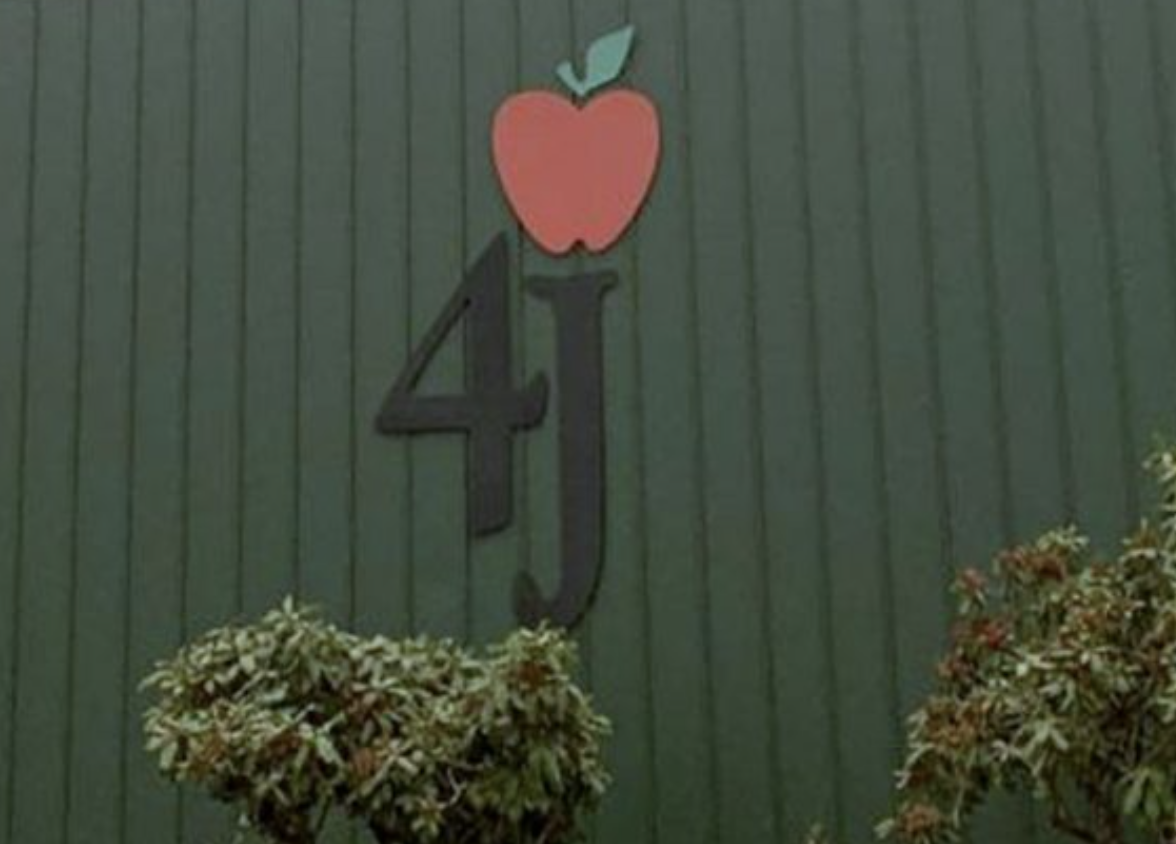On Tuesday, April 18, Spencer Butte Middle School students walked out of school to protest the way harassment is reported and responded to on their campus.
Their demonstration began a little after 2 pm and lasted through the end of the school day. According to 4J Communications Director Jenna McCulley, the original impetus for the protest came from the No Place For Hate student group, which is overseen by a faculty member and is part of the Anti-Defamation League’s nationwide effort to develop anti-bias frameworks in schools and end harassment and bullying.
Students protesting were frustrated in part over what are referred in the school to as “green forms,” or harassment reports. These forms, nicknamed for their color, are used by the Eugene 4J School District for students to file a complaint when bullying occurs. According to Mckenna Bannister, an eighth grader at Spencer Butte and member of No Place For Hate, the forms fall short.
“A large issue of the green forms was there was zero response,” Bannister says. “If there was a response, it was a very long time, up to three months. And a lot of kids who filled out those green forms really needed someone right then and there.”
When 4J middle school students want to address bullying, harassment or other concerns, the first step is filling out the green form. The form prompts them to write a description of the incident and what they would like to see happen, along with information about the person experiencing the incident, whether that is the student filling out the form or someone else, and the person who caused the incident. It also asks if the student has a teacher or counselor supporting them, and if they would like that person present when speaking to administration.
On the other side of the form, the administrator is then supposed to fill out details, including whether or not the incident targeted any marginalized identities the student might hold, such as race or sexuality, identify outcomes or next steps following meeting with the student, and state whether the student or administrator feel that the issue is resolved.
But Larry Williams, 4J director of Equity, Inclusion & Instruction, says that students don’t like having to fill out a form before getting the chance to speak with an adult.
“It’s not personal enough to them,” Williams says of the forms. “I think what we glean from it as adults is that sometimes they need to talk to someone.”
In response to the walkout, Williams, along with others in the district, has been speaking with students on the No Place For Hate leadership team to gather more information about their concerns and find a system that works for them.
Williams says the students believe that connecting with someone, such as a counselor or office staff member, closely following an incident is always preferable to just filling out a green form and waiting. He says that students feel the forms may continue to be useful in some instances, such as filing more general reports, and adults could fill out a green form following a meeting with a student if they felt it was necessary.
Bannister says that the Safe Oregon website is also being recommended as an additional tool for reporting, though she says it functions similarly to a green form, with students able to report a tip following an incident. Additionally, she and another student are vying for suggestion boxes to be placed in the school as another way to get issues addressed with more speed.
For the remainder of the school year, Williams says his team will be visiting other middle schools to see if the frustration with the reporting process is common throughout the district. His hunch is that Spencer Butte Middle School students’ concerns are not isolated, and he believes that the work that needs to be done will benefit 4J middle schools holistically.
Williams was impressed by the students at Spencer Butte Middle School that he spoke with, saying they were “very mature beyond their age.”
“They really stayed focused on what they need to feel good about the process,” he says. “It was a pleasure.”
Find out more at NoPlaceforHate.org.
This story was developed as part of the Catalyst Journalism Project at the University Of Oregon School of Journalism and Communication. Catalyst brings together investigative reporting and solutions journalism to spark action and response to Oregon’s most perplexing issues. To learn more visit CatalystJournalism.uoregon.edu or follow on Twitter @uo_catalyst
